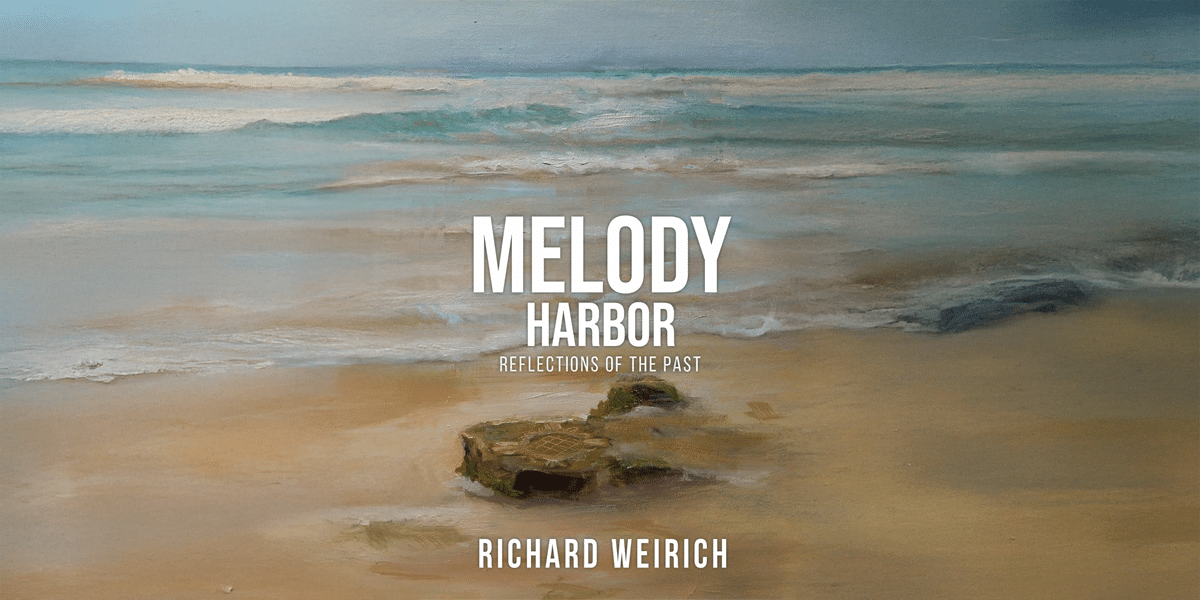By: Make Me Noteable
The role of a news anchor is a delicate balance between professionalism and the temptation to sensationalize. In Richard Weirich’s Melody Harbor: Reflections of the Past, this tension is brought to life through Eddie Morrison, a seasoned news anchor who is forced to confront the complex dynamics between journalistic integrity and the pressures of the media industry.
As Hurricane Grace bears down on the Alabama Gulf Coast, Eddie finds himself in a battle not only with the storm but with the ethical dilemmas that arise from his profession.
This read explores how Melody Harbor highlights the struggle between maintaining professionalism and succumbing to sensationalism in the world of crisis journalism.
The Role of the News Anchor in Crisis Situations
In a disaster like Hurricane Grace, news anchors are responsible for informing the public, but the stakes are higher in such catastrophic situations. Eddie Morrison, a GNN anchor, faces immense pressure to balance providing accurate information with his station’s demand for higher ratings.
While he strives to deliver clear and helpful coverage, he is also aware of the media’s temptation to sensationalize. The competition for viewers often leads to exaggerated coverage, which conflicts with his professional duty to avoid inflating fears and distorting the truth. Eddie is caught between ethical responsibility and the drive for sensationalism.
Professionalism: The Ethical Anchor
Eddie’s sense of professionalism serves as his moral compass throughout Melody Harbor. As a seasoned journalist, he knows that his primary role is to inform the public. His responsibility goes beyond mere storytelling—he must provide clear, factual information that can help people make crucial decisions during the storm. From advising viewers on evacuation routes to explaining the potential dangers of the hurricane, Eddie’s commitment to professionalism is evident. He is not swayed by the corporate demands of his station to create a spectacle.
This commitment to professionalism is central to Eddie’s character arc. As the storm intensifies, Eddie’s ability to maintain a level of calmness and objectivity becomes a powerful symbol of the role that integrity plays in journalism.
Despite his personal struggles and the pressure surrounding him, Eddie strives to stay focused on what matters most: providing accurate, reliable information. In doing so, he contrasts sharply with the sensationalism that dominates his station’s coverage. His professionalism becomes not just a duty but a personal ethic—a way of proving that journalism can remain a force for good even in the face of commercial interests.
Sensationalism: The Dark Side of Crisis Journalism
While Eddie holds firm to his journalistic ethics, the world around him pushes him toward sensationalism. His network, GNN, emphasizes drama over substance, often choosing to exaggerate the severity of the storm to boost ratings.
In Melody Harbor, Weirich exposes the darker side of crisis journalism—the tendency to heighten the impact of disasters for entertainment value. The pressure to create a gripping narrative can lead to the distortion of facts, where the actual threat of a disaster is exaggerated, and fear is amplified.
Sensationalism in crisis journalism not only distorts the truth but can also endanger the public. By fueling unnecessary panic and hysteria, sensationalized media coverage can lead to misguided decisions, such as people making unsafe choices or overreacting in the face of real threats.
Eddie’s internal battle represents the conflict many journalists face: the drive to maintain a gripping story while also respecting the reality of the situation. As the story unfolds, Eddie must decide whether to go along with the sensationalized narrative his network wants or to risk his career by staying true to his values.
The Struggle Between Professionalism and Sensationalism
Eddie’s struggle to maintain professionalism amid sensationalism lies at the heart of Melody Harbor. Weirich explores the growing conflict between journalism and entertainment in today’s fast-paced news world, where dramatic stories often overshadow accuracy.
Eddie’s challenge is to resist the pressure to sensationalize while staying true to responsible journalism. The novel illustrates how ratings and commercial interests can compromise news integrity, highlighting the power of media to shape public perception. Eddie’s story reflects the broader challenges journalists face in upholding honesty and fairness in an industry driven by profit.
Summary
Melody Harbor explores the tension between professionalism and sensationalism in crisis journalism. Through Eddie Morrison’s experiences, Richard Weirich offers insightful commentary on the ethical challenges journalists face when covering disasters.
As Eddie navigates the pressures of sensationalism, the novel reminds readers of the media’s responsibility in shaping public understanding during crises.
With masterful storytelling and deep character development, Melody Harbor: Reflections of the Past is perfect for those interested in media ethics and the complex role of journalism in society, highlighting the struggle between integrity and commercialism. Get your copy now on Amazon!
Published by Nicholas A.
















